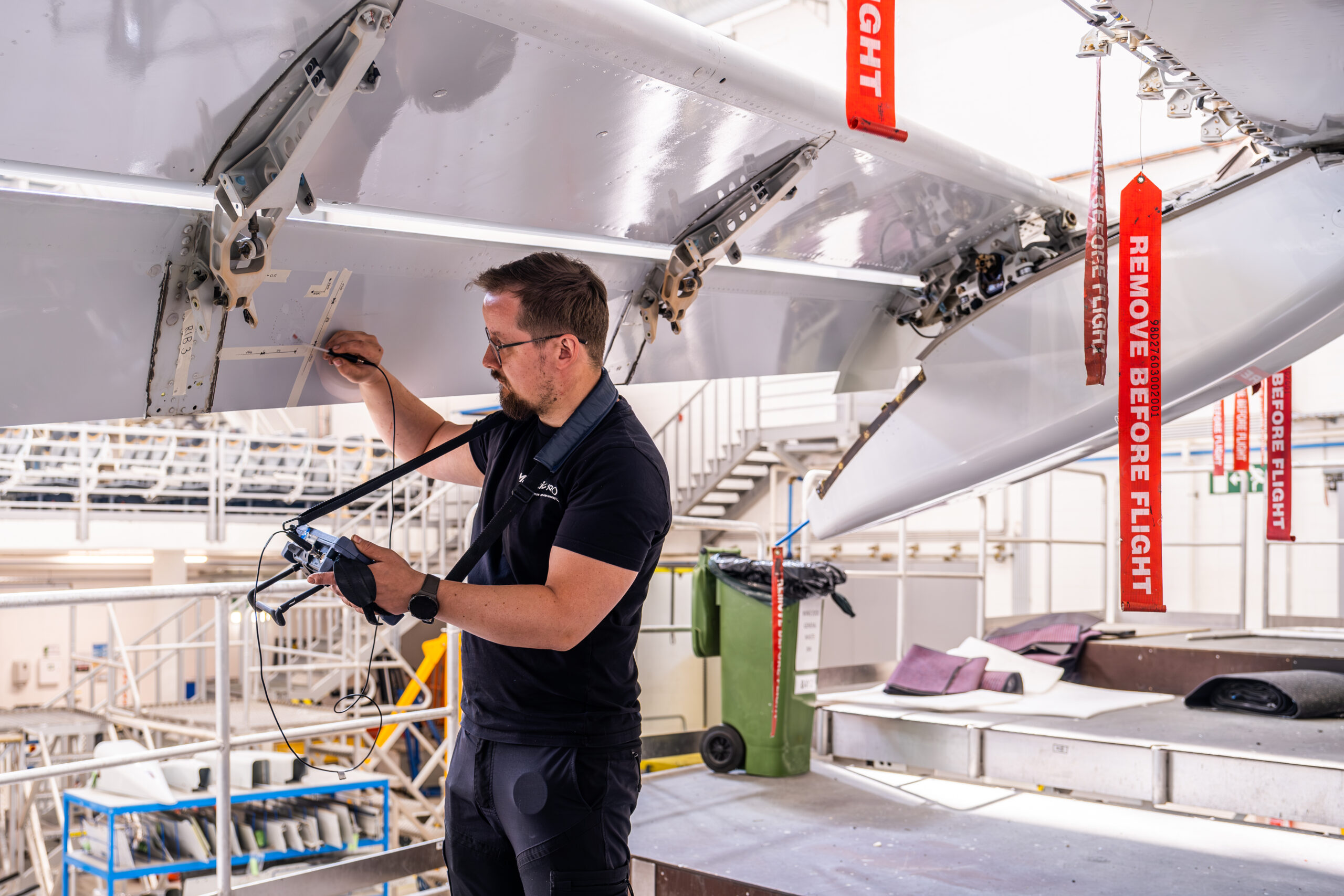Non-destructive Testing (NDT) is a group of techniques to evaluate the properties of a material, component or system without causing damage. With the help of NDT one can detect cracks or any other irregularities in the airframe structure and engine components which are not visible to the naked eye. The testing methods enable us to inspect various materials such as aluminium, titanium, composites and steel.

NDT inspection by EN 4179
Eddy Current (EC)
- Rotary inspection of holes
- Standard surface inspection, blends
- Conductivity testing
- A/C type-specific repetitive tasks

